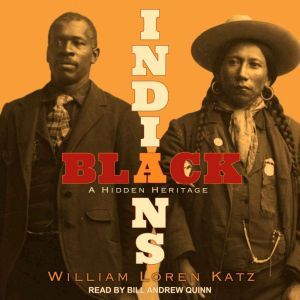

Black Indians
A Hidden Heritage
Author: William Loren Katz
Narrator: Bill Andrew Quinn
Unabridged: 6 hr 1 min
Format: Digital Audiobook Download
Publisher: Tantor Media
Published: 05/14/2019
Categories: Young Adult Nonfiction, History, Us History, Native American
Synopsis
The first paths to freedom taken by runaway slaves led to Native American villages. There, black men and women found acceptance and friendship among our country's original inhabitants. Though they seldom appear in textbooks and movies, the children of Native- and African-American marriages helped shape the early days of the fur trade, added a new dimension to frontier diplomacy, and made a daring contribution to the fight for American liberty.
Since its original publication, William Loren Katz's Black Indians has remained the definitive work on a long, arduous quest for freedom and equality. This new edition includes updated information about a neglected chapter in American history.
